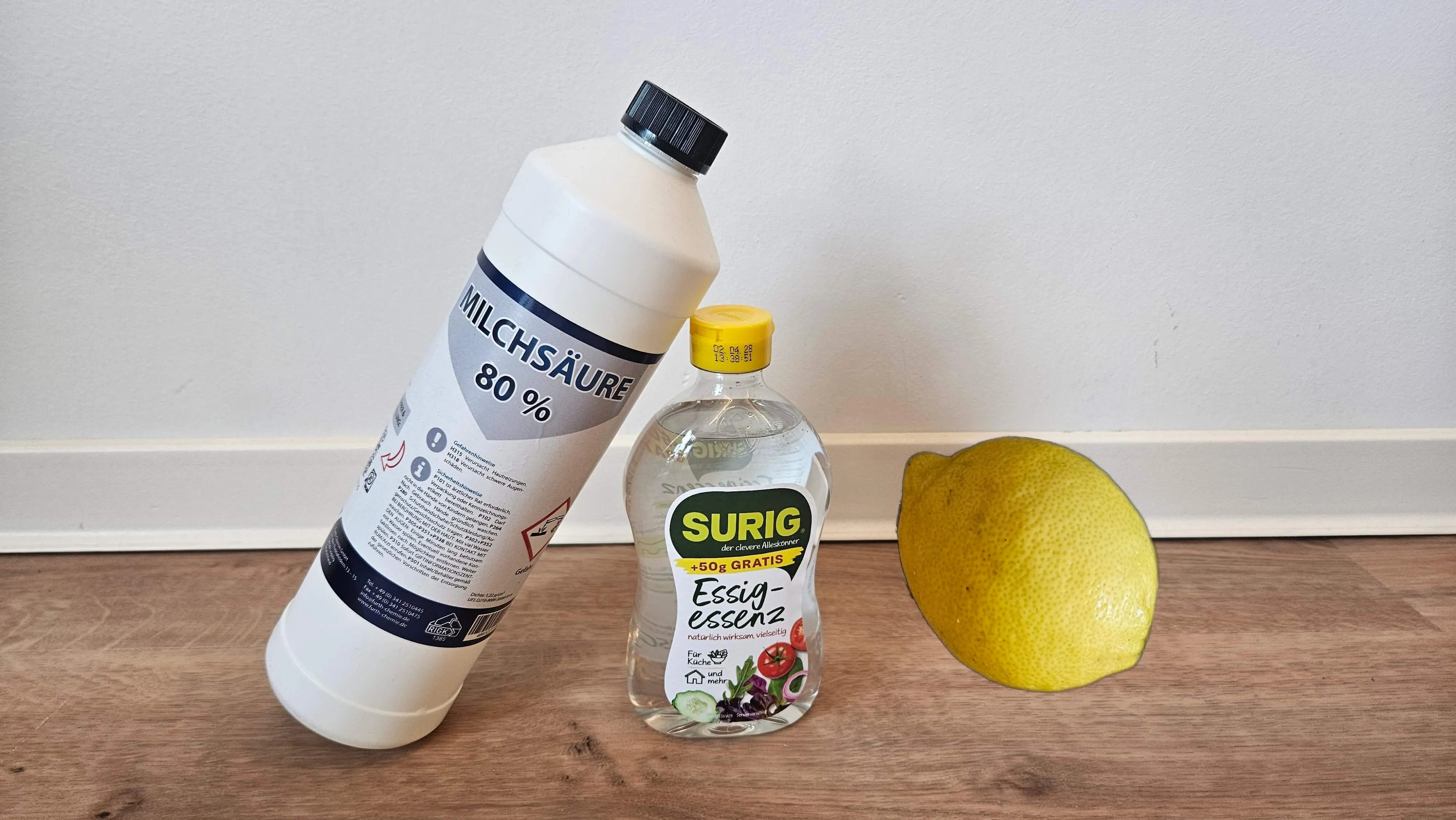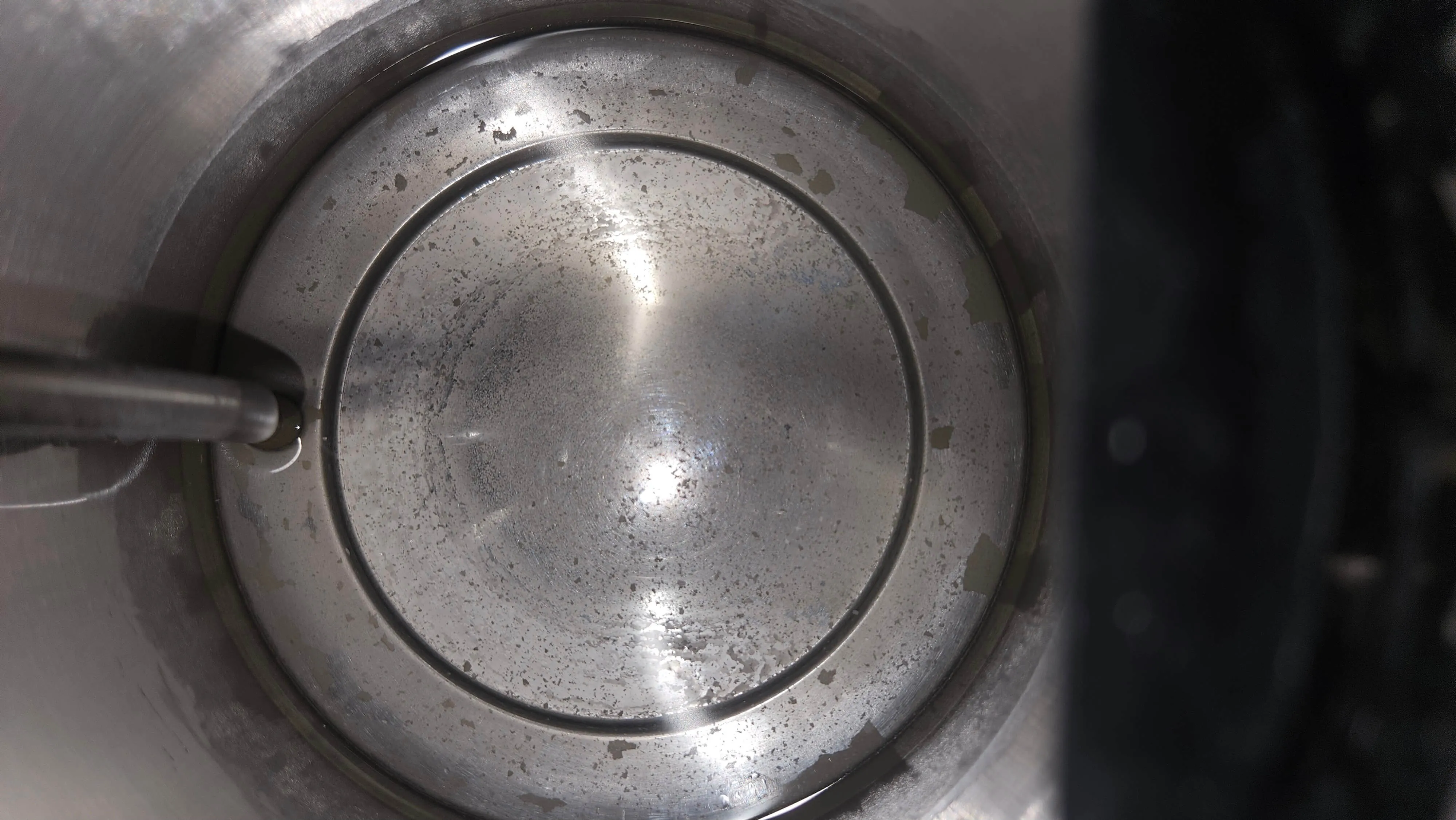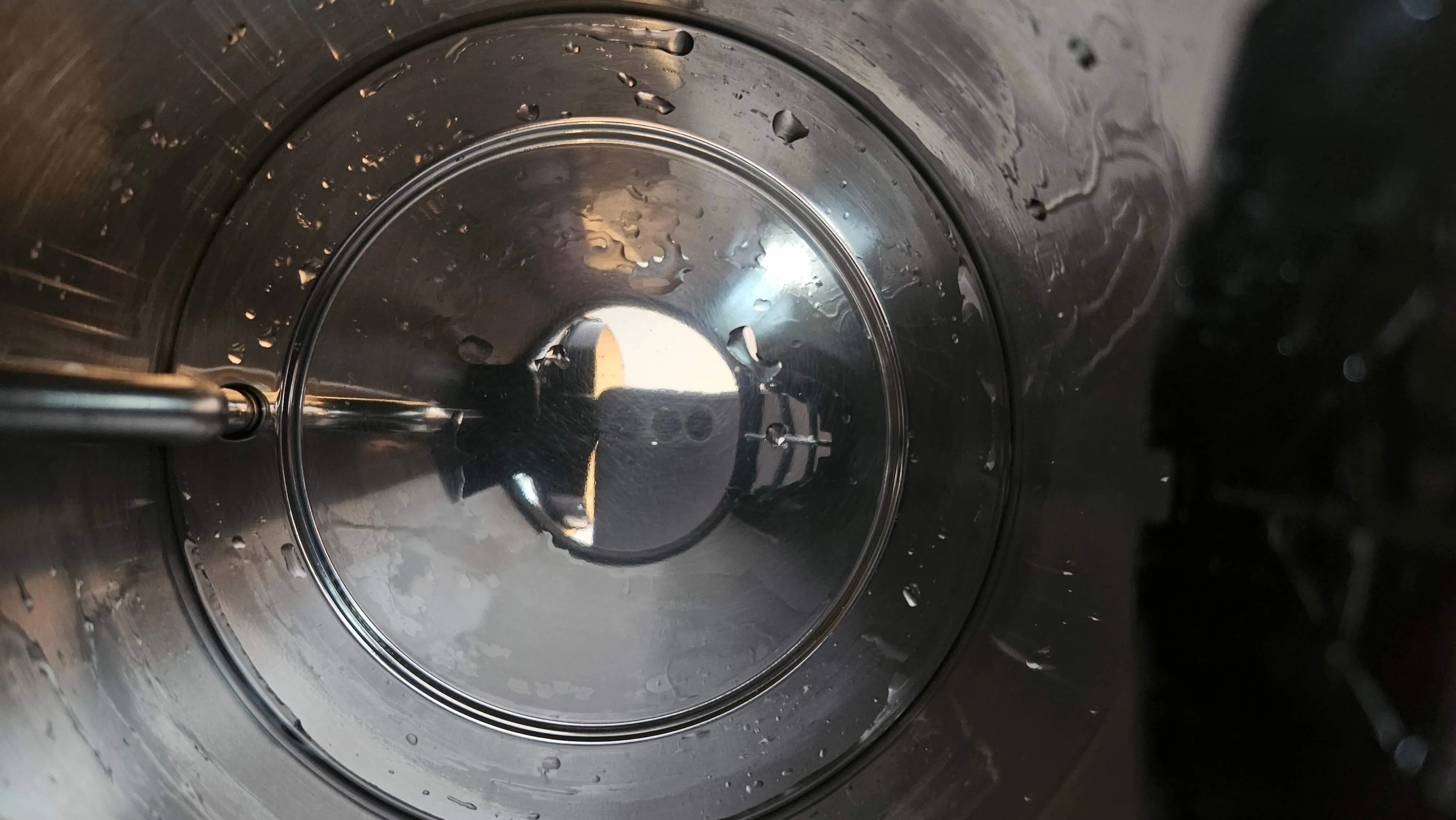Descaling with Home Remedies: Lactic Acid, Vinegar, and Citric Acid
Who hasn’t experienced this? The kettle runs slower, the coffee machine makes strange noises – time to descale! Many people turn to expensive specialty cleaners right away. But that’s not necessary! There are simple household remedies that work just as well (if not better) – and they’re much cheaper. Today I’ll show you my three favorites – including tips on what to watch out for.

1. Lactic Acid – My Favorite
Lactic acid is a true all-rounder. Even at low concentrations (around 5%), it removes limescale reliably – even without heating! It’s especially good for electric appliances that heat water, like kettles, coffee machines, or egg boilers.
-
Why lactic acid?
- Food-safe and leaves no residue
- Removes limescale thoroughly, even when cold
- Ideal for sensitive appliances
Tip: If you heat the mixture – just below boiling – it works even faster. But be careful: lactic acid can foam! So don’t fill the kettle completely.
Downside: The acid is usually highly concentrated – so like with many cleaners, it’s best to use gloves.


2. Acetic Acid – The Classic All-Rounder
Vinegar works reliably and is widely available. It removes limescale even when cold, making it particularly useful for bathrooms.
-
Advantages of vinegar:
- Easy to use
- Removes limescale and kills germs
- Widely available and affordable
But caution: vinegar can attack plastics and rubber seals. That shortens the lifespan of seals – so better avoid using it in appliances.
3. Citric Acid – Gentle, But With a Catch
Citric acid is also food-safe and works well against limescale – even without heating. It’s often already in the home and doesn’t damage seals.
BUT: Heating it causes residues to form! In devices like fully automatic coffee machines, this is counterproductive – the limescale is gone, but new deposits appear.
Conclusion
Which remedy you use depends on the application. All three are much cheaper than specialty descalers – especially in pure form. Personally, I prefer lactic acid: strong, safe, and residue-free. So: save money and get started!